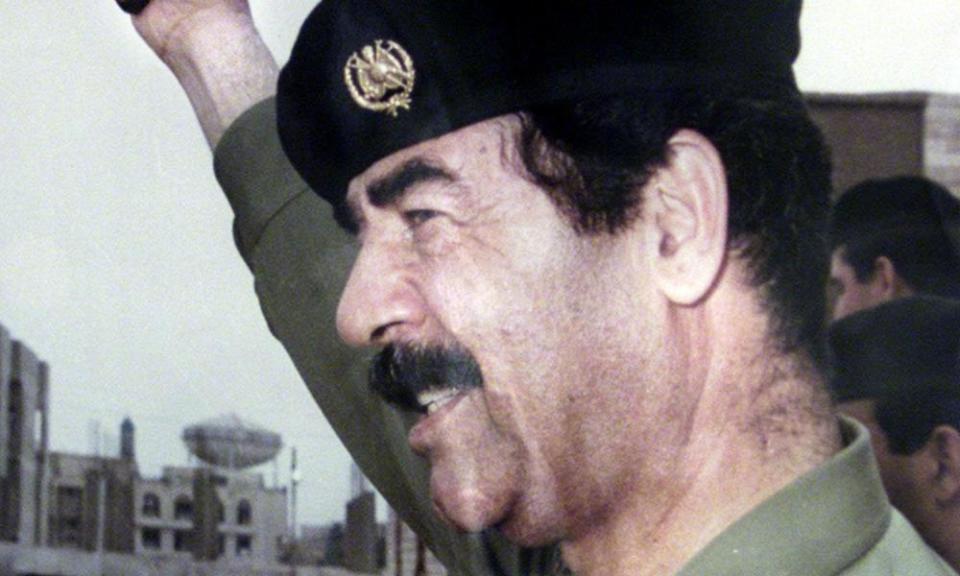Thatcher considered SAS-style raid in Kuwait to get food to diplomats

Margaret Thatcher considered an SAS-style raid to resupply Britain’s besieged embassy in Iraqi-occupied Kuwait, which was running out of water, food and fuel in the run-up to the Gulf war in September 1990, newly released Downing Street papers reveal.
After his shock invasion of Kuwait in August 1990, Saddam Hussein had given the diplomats three weeks to transfer their operations to Baghdad but the British along with other embassies refused to leave.
Percy Cradock, Thatcher’s veteran foreign affairs adviser, was asked to investigate the possibility of using military special forces to resupply the embassy, where four remaining diplomats including the ambassador were living behind 3-4-metre (10-12ft) high walls topped with barbed wire.
“Outside, the embassy is under the surveillance of guards. Kuwait City itself is dense with Iraqi infantry. The occupants reckon they have supplies to last 50 days (about the end of October with reduced communications activity). After that they will need water, food and fuel,” Cradock reported back to Thatcher.
“We looked at the possibility of resupply of our embassy by means of a military operation. This has been carefully examined in the Ministry of Defence and the military view is that the hazards in relation to benefits would be excessive. Kuwait and its approaches are heavily defended. There are mines on the beaches and plentiful air defence. The sea approaches are patrolled by Iraqi fast boats. We have no available submarine and a sea approach would involve bringing a destroyer or frigate dangerously close to shore,” he said.
A parachute drop was ruled out as impractical and while they could get a helicopter in it was unlikely to get out again, simply adding to the number of people to be fed and exposing the helicopter crew to probably fatal reprisals by the Iraqis.
Another idea considered was asking the Kuwaiti resistance to get local people to drop small quantities of supplies over the walls at night but an initial response indicates this was considered difficult and dangerous.
Nevertheless, the British remained along with the Americans, Germans and French, who were also cut off from utilities. Nearly two months later a telegram dated 3 November 1990 appeared in the Downing Street file with a note: “From our man in Kuwait”. Signed “Burton”, it reported “regrettably there is little ‘haute’ about my cuisine, at least in these circumstances.
“We have one meal a day, consisting of rice and pasta alternately. We still have quite a lot of tins of tuna and a few of frankfurters, plus a lot of spices, mostly taken from the servants’ quarters.
“Unfortunately we are very short of onions, though we do have garlic, and have only a few tins of tomatoes and tomato paste. We have a little powdered milk left and ‘gram’ powder made from chickpeas, I think, so I can make white sauces. We have used up all our ordinary flour, which means I can no longer make bread, as I did in the early days.”
The besieged diplomat reported that curried tuna and tuna lasagne were both popular, and so was crab in cheese sauce: “Curried frankfurter is rather less so, though ‘sausage chasseur’ is accepted.”
In the event the British embassy held on until 16 December before making its way to Baghdad. The US-led coalition assault, known as Operation Desert Storm, started the following month, in January 1991, to drive the Iraqis out of Kuwait.

 Yahoo News
Yahoo News 